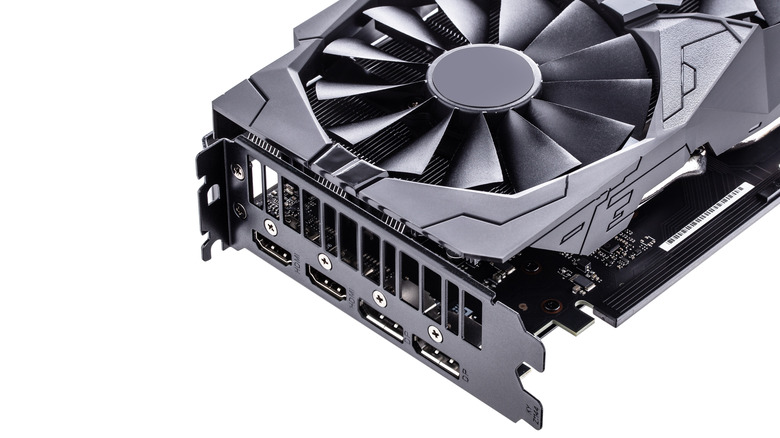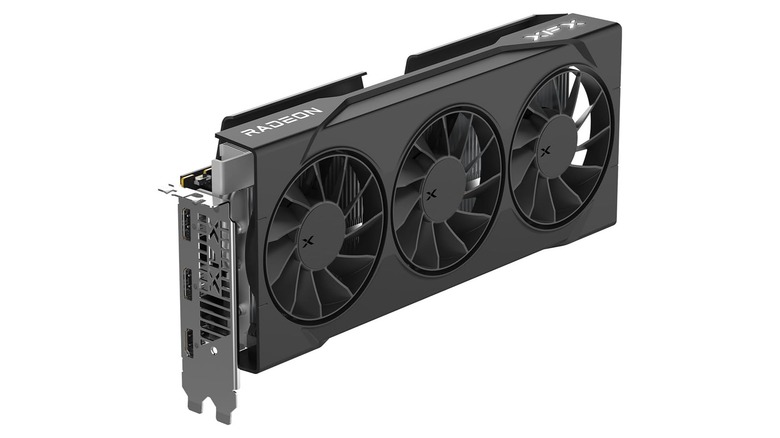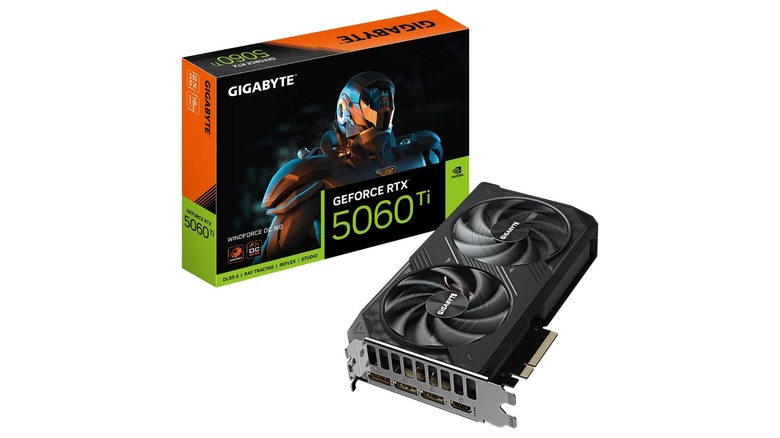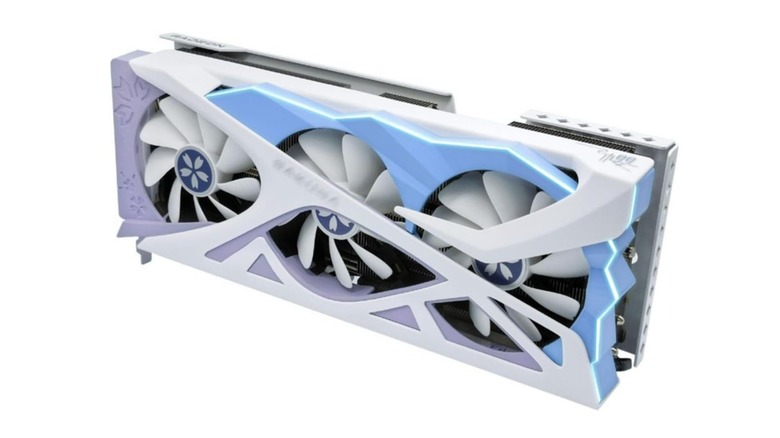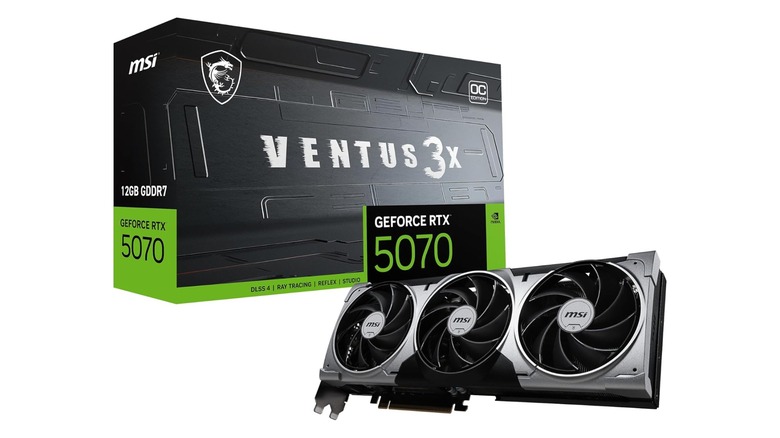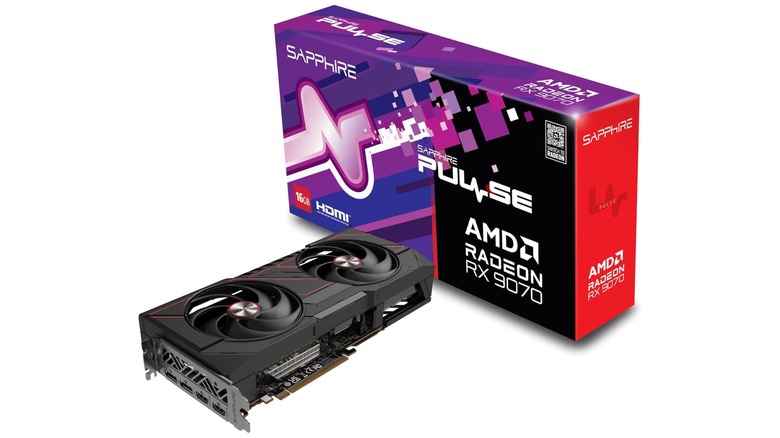These Are 5 Of The Cheapest 4K Graphics Cards You Can Buy Right Now
We may receive a commission on purchases made from links.
If you got your hands on one of the best 4K monitors to take your gaming to the next level, you aren't likely to settle for any compromises with your graphics cards. Many modern games will struggle to run well without an expensive graphics card. Some cards will struggle even at 1080p if a game is especially demanding.
If you're willing to stick to lower framerates or go down to medium quality settings, there are a few cards that can handle 4K gaming just well enough. However, you might struggle to find these cards at the prices they should be at, and some might not be available at all due to high demand. They also won't run perfectly in games designed to stress top-tier cards on the market, such as Microsoft Flight Simulator. Even so, those who can tolerate under 30 FPS will find perfectly acceptable gaming experiences with the GPUs listed here.
RX 9060 XT 16GB
AMD's RX 9060 XT 16GB is the absolute baseline for a 4K graphics card. Unfortunately, although its MSRP is set at around $350, you're more likely to find it above $400 unless you go for the vastly inferior 8GB model. VRAM is important in GPUs when you play at 4K, and it's likely that this limit will make some games outright unplayable at higher resolutions. With that in mind, you'll need to be careful when shopping around for deals, making sure you don't get tripped up by the similar naming schemes if you want to actually enjoy Ultra HD gameplay.
Luckily, the 16GB 9060 XT is perfectly capable in more than a few recent titles. You might still struggle in games like "Black Myth: Wukong" or "Final Fantasy XVI," with their framerates often dipping below 20, but adjusting some settings and taking advantage of FSR should make things much more reasonable. 1% lows also don't make a huge impact on this card at 4K, so you don't have to worry much about stuttering, either. Just don't rely on it to handle much in the way of ray tracing.
RTX 5060 Ti 16GB
Nvidia's RTX 5060 Ti 16GB shares many similarities with the 9060 XT. On top of having its own similarly-named 8GB variant, which should be avoided for 4K enthusiasts, it also has very similar pricing, with its MSRP set at $430. You'll have a much easier time finding it at that price, too, especially at physical locations like Best Buy and Micro Center. Again, just make sure the model you get isn't stuck with 8GB VRAM, or your only chance at 4K gaming will be with titles released long before 2020.
Across the board, the 5060 Ti's performance isn't too far off from the 9060 XT's. It's the cheapest 50-series card available that can handle 4K decently enough, avoiding problems with 1% lows and rarely dipping below a 30 FPS average. Older-generation GPUs might be able to beat it out in both performance and price, but you'll probably end up being forced to buy them secondhand. Graphics cards aren't exactly PC parts you should always buy used, so it's more worthwhile to keep a vigilant eye out for whatever's in stock at the time.
RX 7700 XT
Although it's from the last generation of AMD cards, the RX 7700 XT can still be found brand-new from various retailers. While it launched with a $450 MSRP, the price can be lower if you happen to find a good deal on it. It's another middle-of-the-road card, sometimes beating both the 5060 Ti and the 9060 XT while falling short in some other releases. Considering how its MSRP was originally higher than both of those GPUs, it's far from the worst deal you can find — as long as you get it while it's still available.
One thing to note is that the 7700 XT has 12GB VRAM, which seemingly puts it at a disadvantage. But this amount is still fine for 4K if you avoid using frame generation, ray tracing, or other high-impact features. Even then, only the most demanding games will put a bigger dent in that number, and you probably shouldn't be testing a last-gen mid-range card's capabilities with those in the first place. The bare minimum of 4K gaming is easily achievable with the 7700 XT.
RTX 5070
With a $549 MSRP, the RTX 5070 is far from a "budget" card. The usual price increases at least aren't as crippling as other modern cards, only reaching a little over $600, and this GPU's stock has started to become a bit more common across various storefronts. Despite only having 12GB VRAM, it's still able to handle 4K gaming very well, even with ray tracing enabled. You'll still have trouble hitting 60 FPS in more recent releases, but it's not nearly as difficult as it would be with cheaper cards.
When comparing the RTX 5070 vs. the RTX 5070 Ti, you'll find the latter card getting much higher performance in 4K. Part of this is due to the increased VRAM from 12GB to 16GB, but the Ti model also has much higher specs. It unfortunately also has a much higher price. Still, the non-Ti 5070 is your only brand-new Nvidia option if you don't want to spend closer to $1,000 for as much 4K performance as you can get.
RX 9070
Initially, the RX 9070 was seen as a fantastic competitor to the RTX 5070, sharing its MSRP and often outperforming it in most titles. But AMD's offering is significantly less available today, with few cards anywhere near $600. Most in-stock 9070s are priced anywhere from $100 to $200 above the initial asking price, which makes it an incredibly expensive GPU that's still "cheap" by playable 4K standards. Going a step above for the 9070 XT only leads to bigger problems, with that card's price reaching similar heights to the 5070 Ti.
Despite the increased cost, the RX 9070 is the best 4K-capable GPU on this list, often beating out every other option in modern releases. Even the 5070 falls short of it when it comes to ray tracing, which is likely helped by the 9070 having 16GB VRAM all on its own. Again, 60 FPS is just out of reach, forcing you to go a tier higher if you want something beyond a "playable" experience. But since you won't get that in the most demanding titles without spending over $1,000, the cards here are as affordable as you can get for decent 4K gaming.
